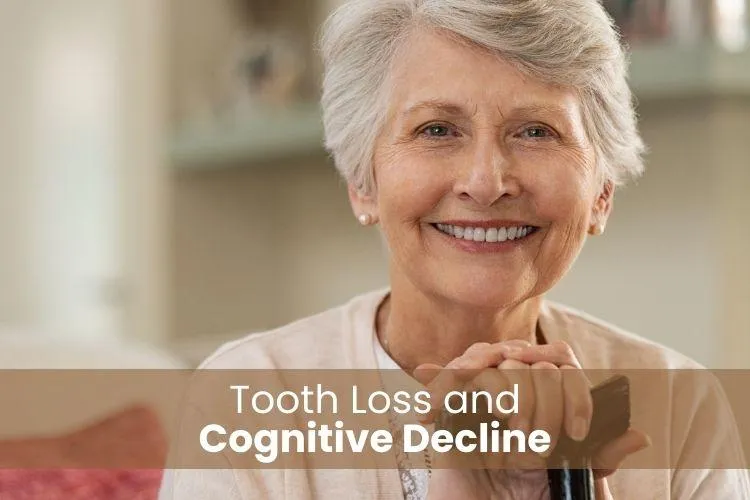

RELATIONSHIP HEALTH ARTICLES

Tooth Loss and Cognitive Decline
I watched my mom care for my aging grandmother over the course of several years. Grandma Huber was pleasant—even if she didn’t remember my name. It was endearing to watch her enjoy a glass of ice water on a hot day after insisting she had never tasted water before. She would sit quietly and listen to church hymns for hours. The words of those sacred songs were among the few things she could still recall.
The hardest I’ve ever been bitten in my career was by a patient with Alzheimer’s. She was generally well behaved, and we had completed a minor procedure without incident. Once finished, I took a deep breath and decided to check my work one last time. She must have sensed I’d let my guard down, because as I reached for her, she leaned forward and bit my finger so hard she broke the skin through the glove. She laughed so sweetly and was so delighted—like a little child—that I could hardly be mad.
Alzheimer’s disease, dementia, and other cognitive illnesses have touched nearly all our lives. Our loved ones remain physically with us, but we are often deprived of who they truly are. The effects are devastating.
That’s why my colleagues and I sat up a little straighter at a recent dental study club when Dr. Shawn Davis, a brilliant oral surgeon here in town, shared a study that found dental implants may help preserve cognitive function in patients who have experienced tooth loss.
This is not an isolated finding. Several studies have reached similar conclusions: individuals who are missing teeth face a higher risk of cognitive decline, dementia, and even Alzheimer’s disease. The risk increases with the number of teeth lost.
There are several theories about why this is the case. We know that chewing stimulates brain activity. We also know that nutrition plays a critical role in brain health. People who have lost teeth often avoid nutrient-rich foods, such as fresh fruits and vegetables, because they are harder to chew than processed alternatives. We’re also gaining a clearer understanding of inflammation and how inflammation in one area—like the mouth—can contribute to systemic inflammation, affecting the heart, lungs, and brain. Mounting evidence shows that bacteria associated with periodontal disease can cause damage in other parts of the body, including lesions in the brain.
The good news? The majority of dental problems are entirely preventable. Brushing and flossing daily, along with regular dental visits, go a long way. Additional treatments, such as fluoride or hydroxyapatite therapies, antimicrobial rinses, and Perio Protect, can further support oral health.
If you’ve already experienced tooth loss, for whatever reason, I encourage you to consider restoring the area with a dental implant. Implants integrate with the bone, stimulating hard tissue and providing natural sensory feedback to the brain during function. They help preserve chewing ability and contribute to improved nutrition. Beyond the functional benefits, they often lead to better health decisions overall. I’ve seen firsthand how dental implants can transform lives.
Talk to your dentist to find out if implants could help you live a healthier life—now and in the future.
Plumb Dental offers general dentistry for the entire family, including preventative care, root canals, implant restoration, cosmetic work—even whole smile makeovers. To schedule an appointment, call (435) 673-9606 or visit their website at plumbdental.com.
